
Find A Professional
More Items From Ergsy search
-

Can self-testing detect all eye conditions?
Relevance: 100%
-
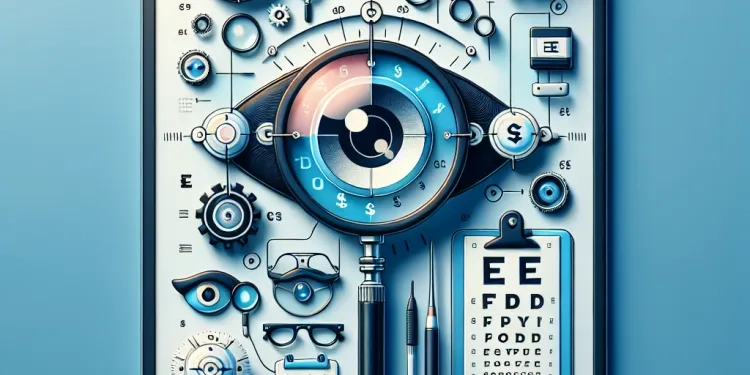
What are the limitations of self-testing for eyes?
Relevance: 95%
-
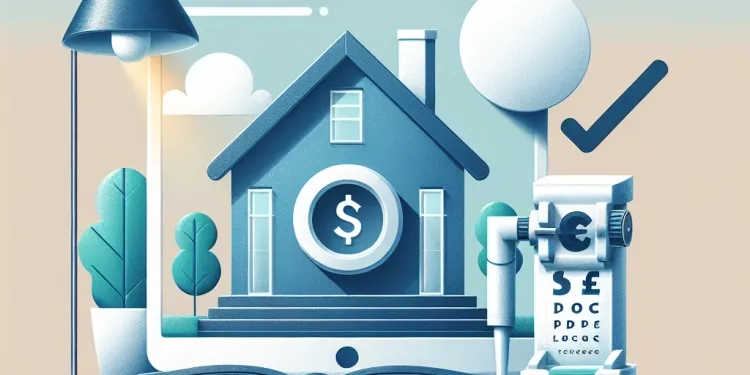
What is self-testing for eye patients?
Relevance: 90%
-
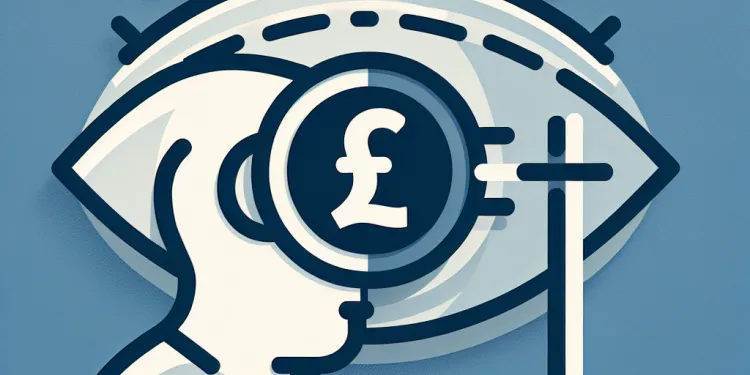
How does self testing for eye patients work?
Relevance: 90%
-
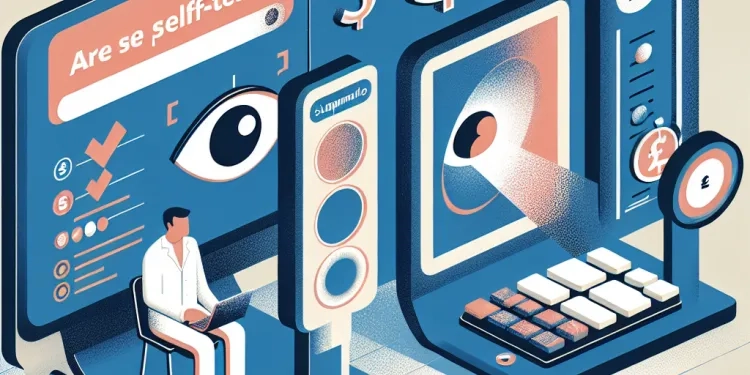
Are self-tests a substitute for professional eye exams?
Relevance: 89%
-
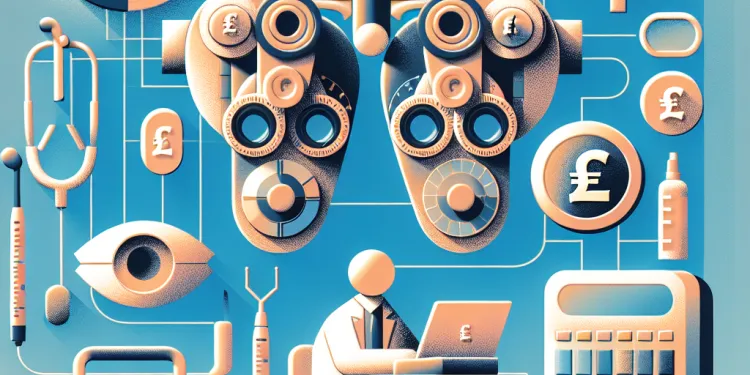
Should I share the results of my self-tests with my eye doctor?
Relevance: 88%
-

How often should I self-test my eyes?
Relevance: 87%
-
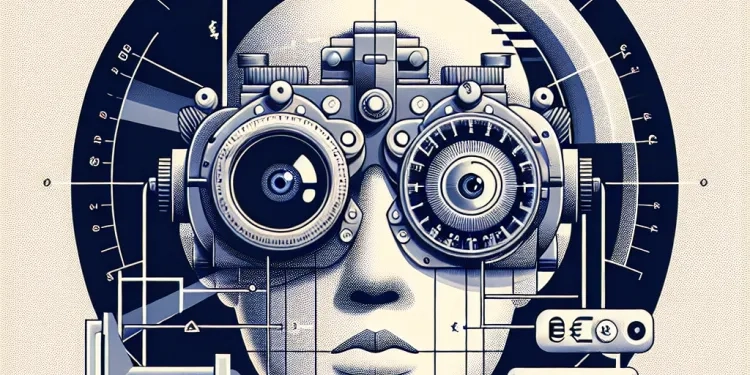
Are there any self-tests for eye pressure?
Relevance: 83%
-

Why would someone need to self-test their eyes?
Relevance: 81%
-

Do I need any special equipment for eye self-testing?
Relevance: 74%
-
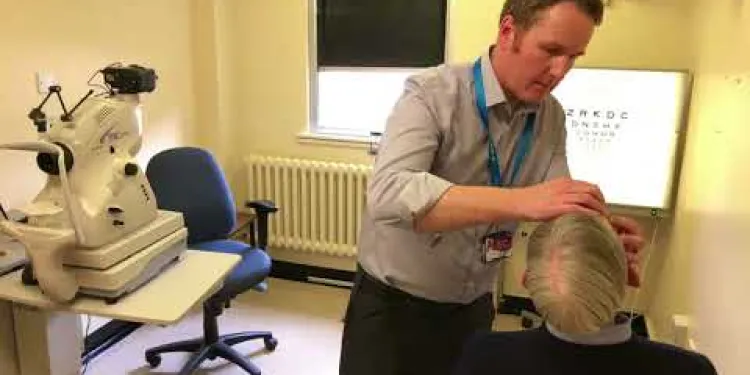
Derbyshire Diabetic Eye Screening - Diabetic Eye Screening
Relevance: 63%
-
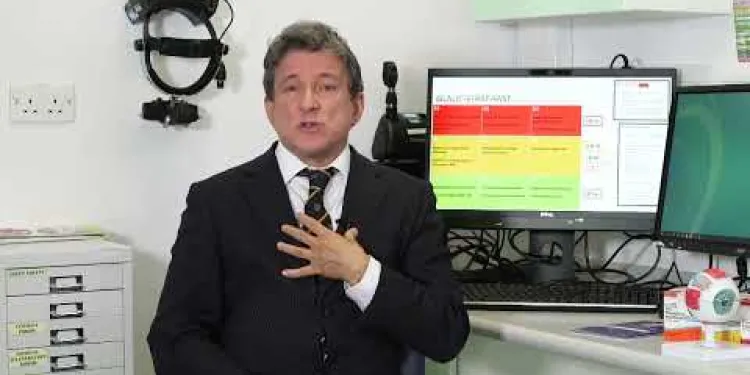
Glaucoma: general side effects of eye drops
Relevance: 62%
-
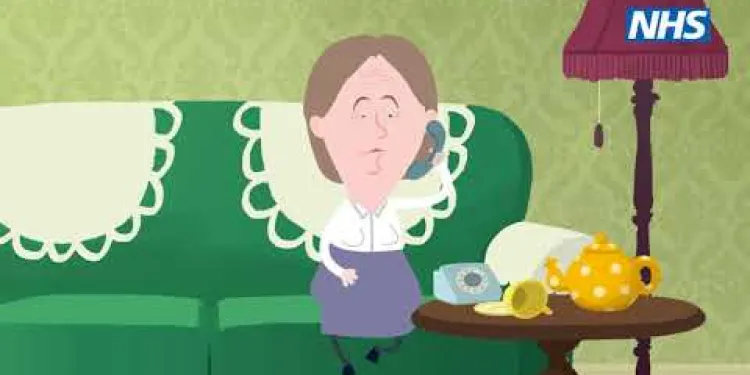
West Midlands LEHN Animated Video on Eye Health
Relevance: 61%
-
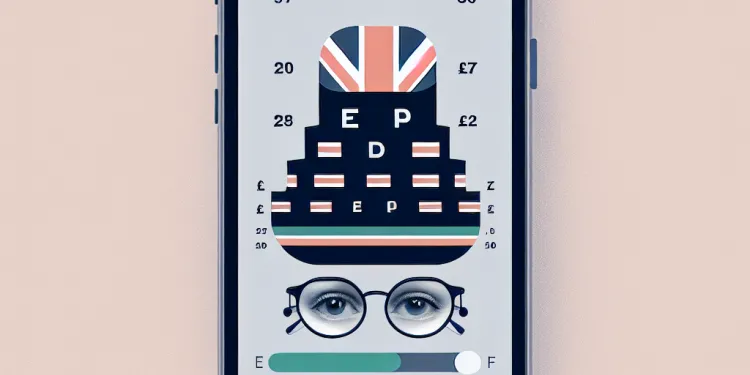
How accurate are app-based eye tests?
Relevance: 53%
-

Can I use a smartphone for self-testing my eyes?
Relevance: 53%
-
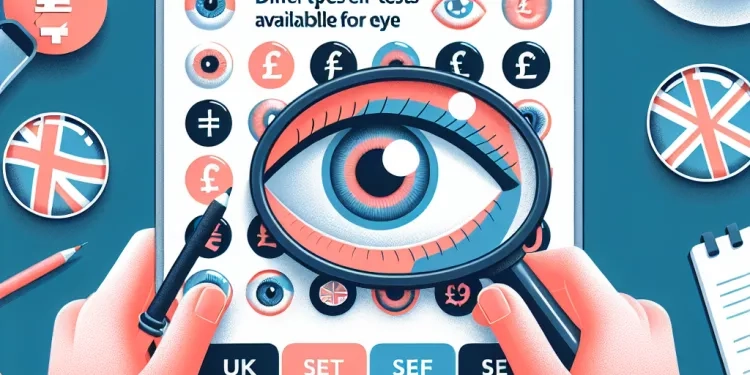
What types of self-tests are available for eye patients?
Relevance: 51%
-
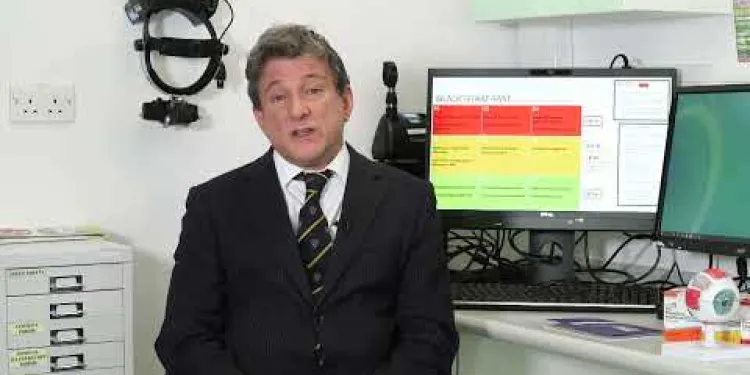
Glaucoma: how often should i take my eye drops?
Relevance: 49%
-
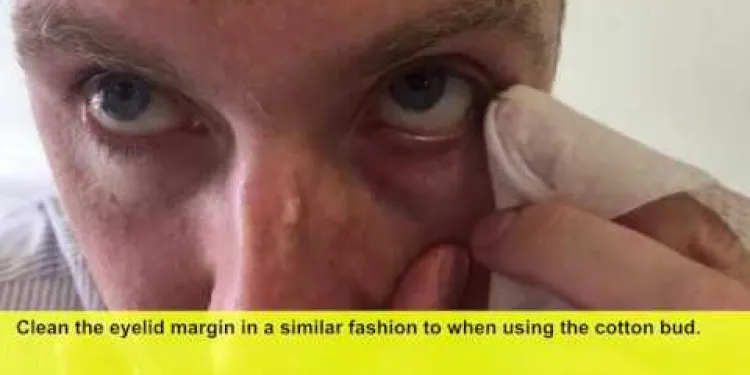
Lid hygiene
Relevance: 46%
-

What age groups can benefit from self-testing?
Relevance: 46%
-

Do insurance plans cover the cost of self-testing tools?
Relevance: 46%
-
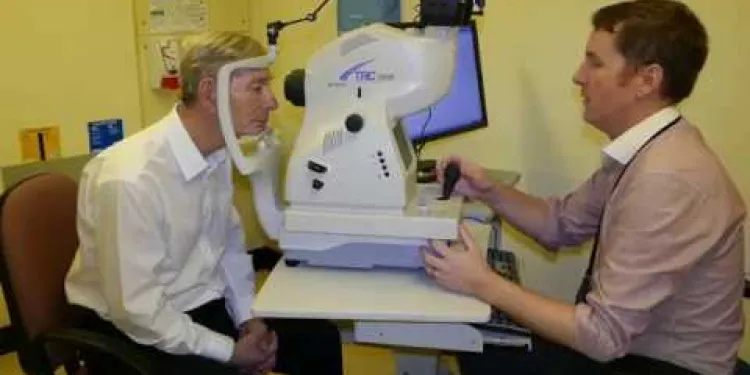
Derbyshire Diabetic Eye Screening - Your Screening Appointment
Relevance: 45%
-
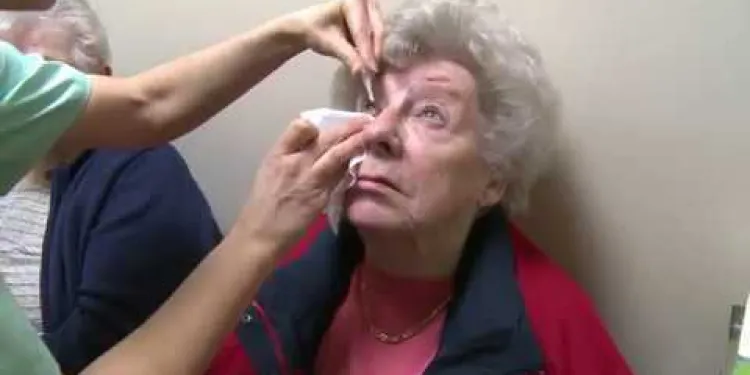
Eye Injections at Royal Bournemouth Hospital
Relevance: 45%
-
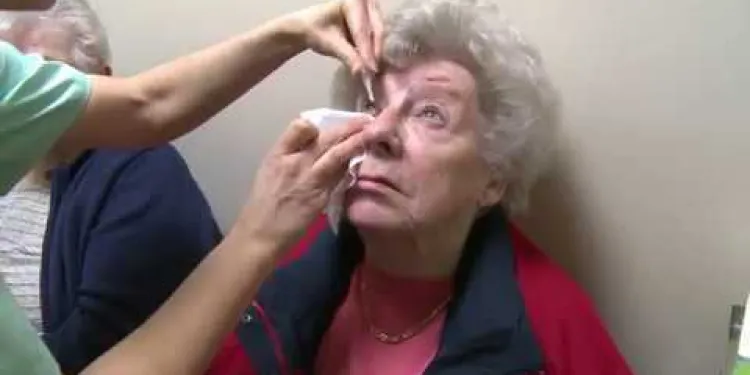
Eye Injections at Royal Bournemouth Hospital
Relevance: 44%
-

Diabetes Eye Screening
Relevance: 44%
-
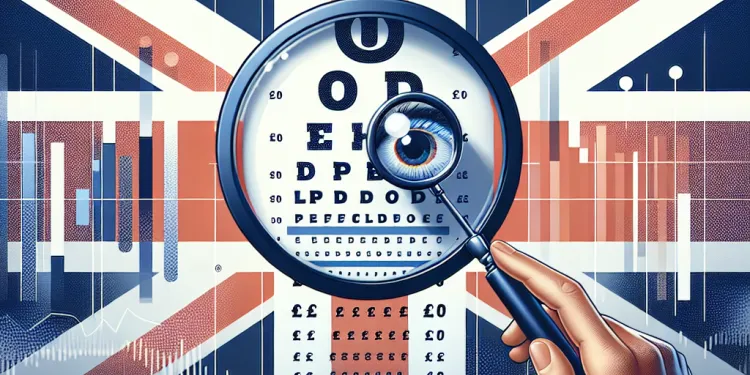
How do I use a vision chart for self-testing?
Relevance: 43%
-
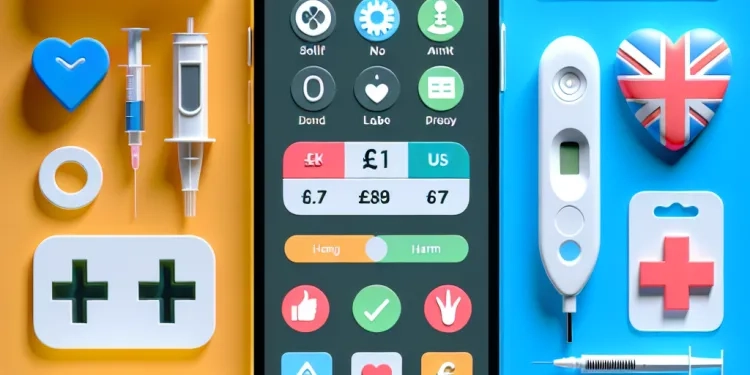
Is it possible for self-tests to cause harm?
Relevance: 41%
-
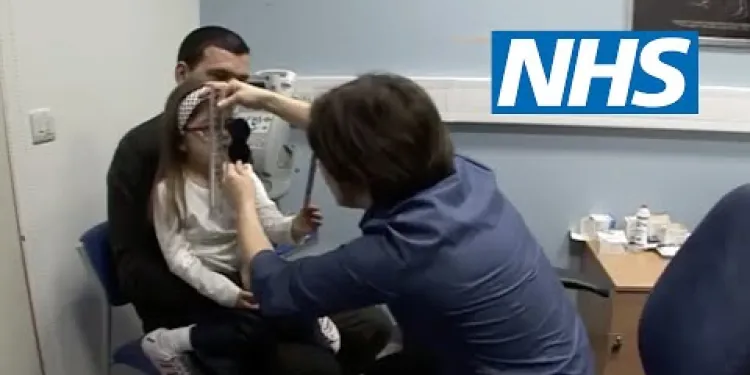
Childhood squint | NHS
Relevance: 41%
-
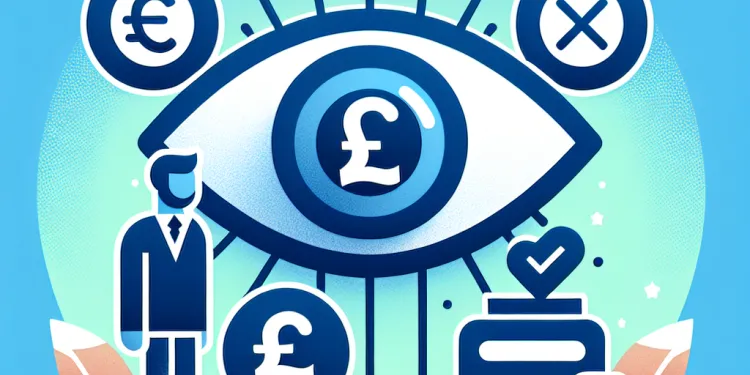
Where can I find reliable self-testing tools for my eyes?
Relevance: 41%
-
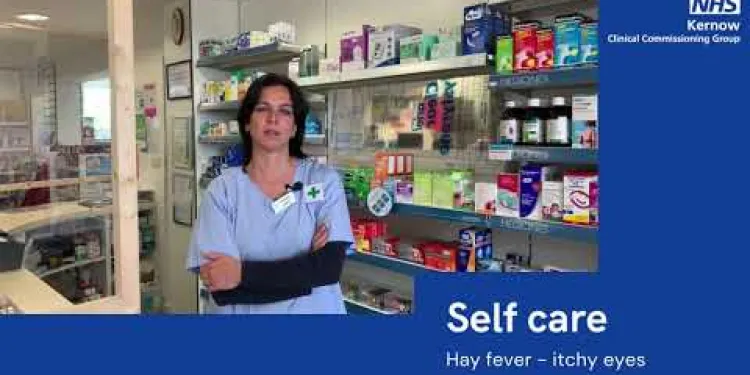
Self care - hay fever itchy eyes
Relevance: 40%
-
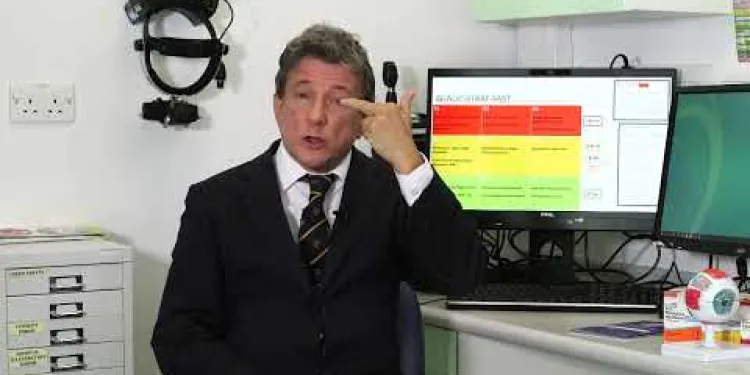
Glaucoma: symptoms in glaucoma
Relevance: 39%
-

Thyroid eye disease. Squint surgery - The operation
Relevance: 36%
-

Think Pharmacy: Conjunctivitis
Relevance: 36%
-

What should I do if I notice changes during self-testing?
Relevance: 32%
-
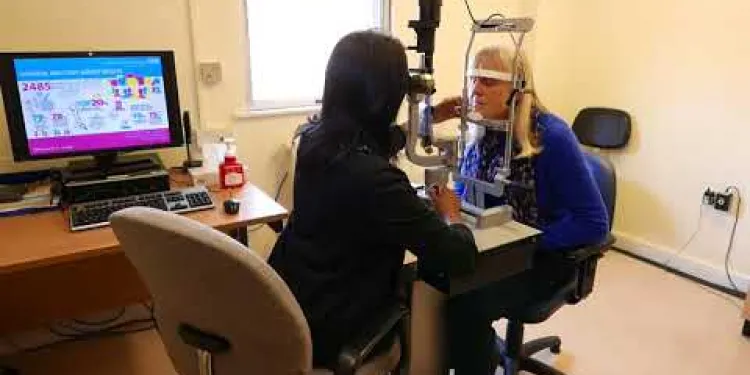
Derbyshire Diabetic Eye Screening - Assessment Clinic Appointment
Relevance: 30%
-
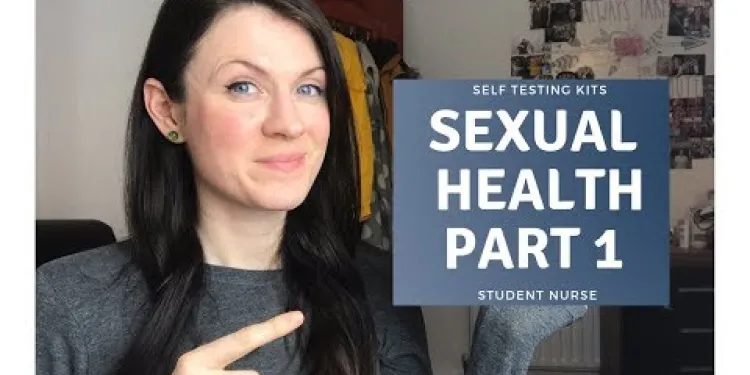
Let's Talk Sexual Health - Home Self Testing Kits
Relevance: 29%
-

Let's Talk Sexual Health - Home Self Testing Kits
Relevance: 27%
-

North Yorkshire Diabetic Eye Screening Programme - A day in the life
Relevance: 27%
-
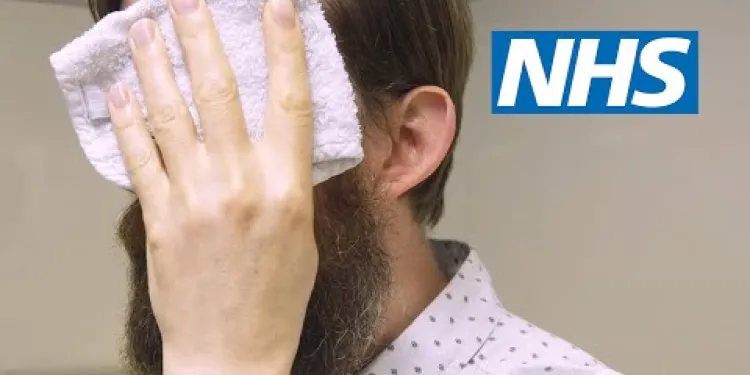
How to treat a stye | NHS
Relevance: 26%
-
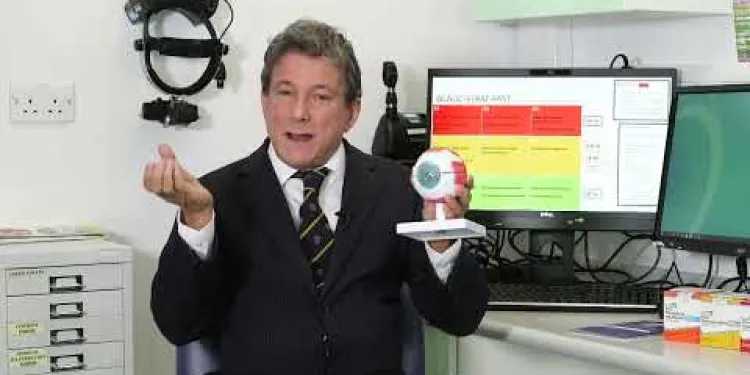
Glaucoma: what is glaucoma?
Relevance: 25%
-
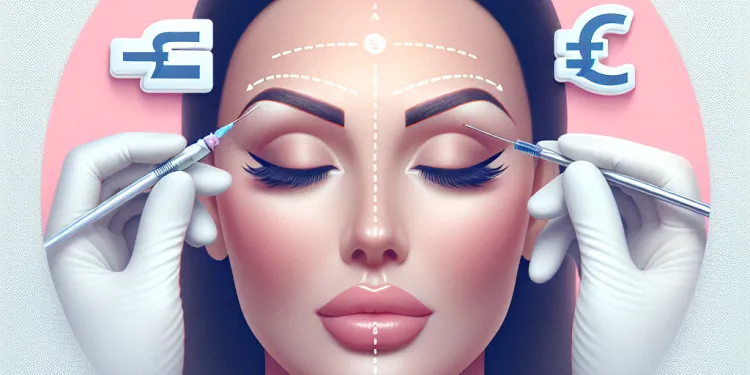
Can Botox lift my eyebrows?
Relevance: 25%
Introduction
Regular eye tests are crucial for maintaining healthy vision and identifying potential issues early. This guide will provide information on how often you should self-test your eyes and when to seek professional eye examinations.
Frequency of Self-Testing
While self-testing cannot replace professional eye examinations, it is beneficial to monitor your vision health regularly at home. You should consider performing a basic visual check on a monthly basis. This can help you observe any noticeable changes in your eyesight, such as difficulty reading small print, seeing far away objects, or experiencing eye strain.
How to Self-Test Your Eyes
There are a few simple methods to self-test your eyes at home. You can use online tools or printable vision charts to check for any changes in your visual acuity. Additionally, pay attention to any new symptoms such as headaches, blurry vision, or difficulty seeing at night as these may indicate a shift in your vision. It's important to remember that self-tests are not comprehensive and should not replace professional advice.
Recommended Professional Eye Examination Schedule
According to the NHS, most adults should have an eye test every two years, although some individuals may require more frequent examinations. Those over the age of 70 or with a family history of eye disease may need yearly check-ups. Children and teenagers should also have regular eye checks as their eyes are still developing.
Signs That Indicate a Need for Immediate Eye Tests
If you experience any sudden changes in vision, such as flashes of light, floaters, or a loss of vision, it is important to seek medical attention promptly. Eye pain, redness, or injury also warrant an immediate visit to an optometrist or ophthalmologist. These could be signs of a more serious condition requiring professional assessment.
Conclusion
Regular self-monitoring of your eye health is a proactive approach to maintaining good vision. However, it is essential to supplement self-testing with regular professional check-ups to ensure comprehensive eye care. By adhering to recommended examination schedules and keeping an eye out for any warning signs, you can help ensure healthy eyesight for years to come.
Introduction
Getting your eyes checked is important to keep them healthy. This guide will tell you how often you should check your eyes yourself and when to see an eye doctor.
How Often to Check Your Eyes at Home
Checking your eyes at home is not as good as seeing an eye doctor, but it helps. Try to check your eyesight once a month. Look for things like trouble reading small words, seeing things far away, or if your eyes hurt.
Ways to Check Your Eyes at Home
You can try some easy ways to check your eyes at home. Use online tools or charts you can print to see how well you can see. Watch out for new problems like headaches, blurry vision, or trouble seeing at night. Remember, these home tests are not a replacement for seeing an eye doctor.
When to See an Eye Doctor
The NHS says most adults should get their eyes checked every two years. Some people might need to go more often, like those over 70 or with eye disease in the family. Kids and teenagers need regular check-ups too, as their eyes are still growing.
When to Get Your Eyes Checked Right Away
If you suddenly see flashes of light, floating spots, or lose your vision, see an eye doctor quickly. If your eyes hurt, are red, or get hurt, go to an eye doctor right away. These might be signs of serious eye problems.
Conclusion
Checking your eyes at home is a good way to keep them healthy, but make sure to see an eye doctor regularly, too. Follow the recommended times for check-ups and watch for warning signs. This helps keep your vision clear and healthy.
Frequently Asked Questions
How often should I self-test my eyes at home?
It's recommended to self-test your eyes every 6 months, but if you notice any vision changes, test more frequently and consult a professional.
Are there any specific signs that indicate I need to self-test my eyes more frequently?
Blurriness, difficulty seeing at night, and frequent headaches can indicate a need for more frequent eye self-tests.
Can self-testing replace professional eye exams?
No, self-testing can help you monitor changes, but it should not replace comprehensive exams by an eye care professional.
Is self-testing enough for those who wear glasses or contact lenses?
No, those who wear glasses or contacts should still have regular professional exams, although self-testing can be a helpful supplement.
Are there any tools needed for self-testing your eyes at home?
Yes, tools like eye charts and apps can be used to self-test your eyes.
How can I ensure accurate results when self-testing my eyes?
Follow instructions carefully, test in a well-lit area, and make sure you're using a test appropriate for your age and condition.
What should I do if I find a change in vision during a self-test?
Schedule an appointment with an eye care professional to address any changes found during self-testing.
Should children self-test their eyes, and how often?
While self-testing can be useful, children should have regular professional eye exams. Parents should monitor and consult professionals if issues are suspected.
Can I self-test for specific eye conditions, like astigmatism?
Some self-tests can indicate potential issues like astigmatism, but professional evaluation is required for diagnosis.
Are digital eye exams as reliable as in-person professional exams?
Digital exams can be convenient but lack the comprehensive analysis provided by in-person exams. Use them as supplementary tools.
How can I track the changes in my vision over time?
Keep a record of your self-test results and any symptoms to discuss with your eye care professional.
What role does age play in how often I should self-test my eyes?
Age affects vision changes; older adults may need more frequent monitoring and professional exams.
Can self-testing help detect early signs of eye diseases?
Self-testing can help notice changes but does not diagnose diseases. Early professional consultation remains crucial.
Is there a preferred time of day for self-testing my eyes?
Test your eyes when you feel most comfortable, usually best when you are well-rested and in a consistent lighting environment.
Does screen time affect how often I should self-test my eyes?
Excessive screen time can strain the eyes; it's wise to monitor eye health frequently if your screen usage is high.
Should I self-test my eyes more often if I have existing eye conditions?
Yes, individuals with known eye conditions should monitor their vision more frequently alongside regular professional check-ups.
Can lifestyle changes impact the frequency of necessary eye self-tests?
Yes, factors like diet, smoking, and screen time can impact eye health and may require more frequent self-testing.
What are the limitations of self-testing your eyes?
Self-tests may not detect all issues and should not replace comprehensive professional evaluations.
Is it necessary to self-test both eyes separately?
Yes, testing each eye separately can help you identify issues specific to one eye.
Are there any apps recommended for eye self-testing?
Yes, there are several apps available that can facilitate home eye tests. Ensure they come from reputable sources.
How often should I check my eyes at home?
You should check your eyes every 6 months. If you see things differently or have trouble, check more often and talk to an eye doctor.
How do I know if I need to check my eyes more often?
Look for signs like:
- Blurry vision (things look fuzzy)
- Headaches when reading or using screens
- Squinting to see things clearly
- Seeing double
- Tired eyes
If you notice these signs, tell an adult or visit an eye doctor.
If your eyes are fuzzy, it's hard to see in the dark, or you often get headaches, you might need to check your eyes more often.
Can you test your eyes at home instead of going to the eye doctor?
No, testing your eyes by yourself is helpful to keep track of changes, but it is not as complete as going to an eye doctor for a full check-up.
Here are some helpful tips:
- See an eye doctor regularly. They can spot problems you might miss.
- Use a calendar or reminder app to remember your eye appointments.
- Write down changes in your vision and tell your doctor.
Can people who wear glasses or contacts check their eyes by themselves?
People who wear glasses or contact lenses might wonder if they can check their own eyes. Here are some tips:
- It's good to see an eye doctor for check-ups. They will make sure your glasses or lenses are right for you.
- You can use tools like eye charts at home to check your eyesight. These are simple tools with letters that get smaller.
- If your vision is blurry or your eyes hurt, visit your eye doctor.
Remember, taking care of your eyes is important!
No, even if you wear glasses or contact lenses, you should still see your eye doctor regularly. Checking your eyes at home can help, but it is not enough by itself.
Do you need any things to check your eyes at home?
You might need some tools to test your eyes at home. Here are some tools that can help:
- Eye Chart: This is a sheet with letters or shapes that you look at to see how well you can see.
- Mirror: You can use a mirror to help see the eye chart if you don't have someone to help you.
- Good Light: Make sure the room is bright so you can see the chart clearly.
- Friend or Family: They can help you read the chart if you need help.
These tools can make it easier to check your eyes at home. If you have trouble reading, ask someone to help you.
Yes, you can use things like eye charts and apps to check your eyes at home.
How can I make sure I get the right results when I check my eyes myself?
Read the instructions carefully. Do the test in a bright place. Use a test that matches your age and health.
What to Do If You Notice a Change in Your Vision
If you see something different with your eyes during a self-test, here’s what you can do:
1. **Tell an Adult:** Talk to a parent or a guardian about what you see.
2. **Visit the Eye Doctor:** They can check your eyes to make sure everything is okay.
3. **Write It Down:** Keep a note of what you noticed and when it happened. This can help the doctor.
4. **Use an App or Tool:** There are phone apps and tools that can help you keep track of your vision. Ask an adult to help find one.
It’s important to act quickly if you see changes so your eyes can stay healthy.
Make an appointment with an eye doctor if you notice any changes during your eye test at home.
Can kids check their own eyes? How often should they do it?
It's important for kids to know if they can see well. Here are some simple things kids can do to check their eyes:
- Look at words or pictures on a page. Are they clear or blurry?
- Watch TV or look at a computer screen. Is everything easy to see?
- Close one eye and then the other. Can you see the same with both eyes?
If things look blurry or if kids have trouble seeing, they should tell an adult.
As for how often, it’s good for kids to tell someone if they have trouble seeing, any time it happens. It's also a good idea to visit an eye doctor every year to make sure eyes are healthy.
For help, kids can:
- Ask a teacher or a parent to check their eyes with simple tests.
- Use picture books or apps made for checking vision at home.
Eye tests at home can help. But kids should still go to the eye doctor regularly. Parents need to watch and ask the eye doctor if they think something is wrong.
Can I check my eyes at home for problems like astigmatism?
Do you want to know if your eyes have problems like astigmatism? You can try to check at home. But remember, seeing a doctor is the best way to know for sure. Here are some things you can do at home:
- Online Eye Tests: Some websites have simple tests for your eyes. They can help find some problems.
- Look at a Straight Line: Is a straight line looking wavy? That can be a sign of astigmatism.
- Keep a Record: Write down any times you have trouble seeing clearly. Take this to the doctor.
It's good to try these at home. But always talk to a doctor for the best help. They can check your eyes to make sure you are okay.
You can try some simple eye tests at home. They might show if there is a problem like astigmatism. But you need an eye doctor to be sure.
Can digital eye exams check eyes as well as seeing an eye doctor in person?
Digital tests are handy to use, but they don't give as much detail as tests you take in person. Use them as extra help.
How can I see how my eyes change over time?
If you want to know how your eyes change, follow these simple steps:
- Go to the eye doctor regularly. They can check your eyes and tell you if there are any changes.
- Write down anything that looks blurry or different in a notebook.
- Ask a friend or family member for help if you’re worried about your eyes.
Here are some tools that might help:
- Use a calendar to remind you to go for eye check-ups.
- An app or a big piece of paper can help you keep track of what you notice about your eyes.
- Simple tools, like magnifying glasses, can help you see things better.
Write down your eye test results and any problems you have. Talk about them with your eye doctor.
How often should I check my eyes as I get older?
Checking your eyes is important. How often you do it can change as you get older.
Here are some tips:
- If you are young, ask an adult to help you check your eyes.
- If you are older, talk to your doctor about how often you should check your eyes.
Remember, everyone is different, and a doctor can help you know what's best for you.
As people get older, their eyesight can change. Older people might need to have their eyes checked more often by an eye doctor.
Can checking your eyes at home help find eye problems early?
Self-testing can help you see if something changes in your health, but it can't tell you if you have a disease. It is important to talk to a doctor early.
When is the best time to test my eyes by myself?
Check your eyes when you feel your best. It’s a good idea to do it when you are not tired and the light is the same.
Does looking at screens change how often I should check my eyes?
Do you spend a lot of time looking at screens, like a computer or a phone?
If yes, it is a good idea to test your eyes a bit more often. This helps to make sure your eyes stay healthy.
You can ask an adult to help you with eye tests. There are also apps and tools that can help you check your eyes.
Remember to take breaks and rest your eyes when using screens. Looking away from the screen every 20 minutes can be helpful.
Looking at screens for a long time can make your eyes tired. It's a good idea to check your eyes often if you spend a lot of time in front of a screen.
Should I check my eyes more often if I already have eye problems?
If you have eye problems, it's good to check your eyes often. This helps keep your eyes healthy.
Here are some tips to help you:
- Ask someone to help you if it's hard to check your eyes by yourself.
- Use a big-print eye chart that you can read easily.
- Try using a magnifying glass to see better.
- Visit an eye doctor regularly to make sure your eyes are okay.
If you have problems with your eyes, it's important to check your eyes often. Make sure you also see your eye doctor regularly.
Can changing how you live affect how often you should check your eyes?
Yes, things like what you eat, smoking, and looking at screens a lot can affect your eyes. It might mean you need to check your eyes more often.
What are the limits of checking your own eyes?
Here are some things to remember if you check your eyes at home:
- You might not see all problems.
- It can be hard to take the test the right way.
- You might need glasses, but a home test won't tell you.
- An eye doctor can check more things, like eye health.
If you find reading hard, you can use tools like text-to-speech apps. These apps can read the words out loud for you.
Self-tests might not find all problems. It is important to visit a doctor for a full check-up.
Do I need to check each eye on its own?
It helps to check one eye at a time. This way, you know how well each eye can see. You can use a simple cover, like your hand, to cover one eye. Then, look at things like letters or shapes. Switch eyes and do the same.
Tools that can help:
- A friend or family member to help you.
- If you find it hard, try listening to calming music while you test.
Yes, checking each eye on its own can help you find problems that might only be in one eye.
Can I use apps to check my eyes?
Yes, there are apps that can help you check your eyes.
These apps might help you:
- Check your vision.
- See if you need glasses.
Try asking an adult for help to find these apps.
Yes, there are many apps that can help you check your eyes at home. Make sure you use apps from safe and trusted sources.
Useful Links
- Ergsy carfully checks the information in the videos we provide here.
- Videos shown by Youtube after a video has completed, have NOT been reviewed by ERGSY.
- To view, click the arrow in centre of video.
- Most of the videos you find here will have subtitles and/or closed captions available.
- You may need to turn these on, and choose your preferred language.
- Go to the video you'd like to watch.
- If closed captions (CC) are available, settings will be visible on the bottom right of the video player.
- To turn on Captions, click settings .
- To turn off Captions, click settings again.
More Items From Ergsy search
-

Can self-testing detect all eye conditions?
Relevance: 100%
-

What are the limitations of self-testing for eyes?
Relevance: 95%
-

What is self-testing for eye patients?
Relevance: 90%
-

How does self testing for eye patients work?
Relevance: 90%
-

Are self-tests a substitute for professional eye exams?
Relevance: 89%
-

Should I share the results of my self-tests with my eye doctor?
Relevance: 88%
-

How often should I self-test my eyes?
Relevance: 87%
-

Are there any self-tests for eye pressure?
Relevance: 83%
-

Why would someone need to self-test their eyes?
Relevance: 81%
-

Do I need any special equipment for eye self-testing?
Relevance: 74%
-

Derbyshire Diabetic Eye Screening - Diabetic Eye Screening
Relevance: 63%
-

Glaucoma: general side effects of eye drops
Relevance: 62%
-

West Midlands LEHN Animated Video on Eye Health
Relevance: 61%
-

How accurate are app-based eye tests?
Relevance: 53%
-

Can I use a smartphone for self-testing my eyes?
Relevance: 53%
-

What types of self-tests are available for eye patients?
Relevance: 51%
-

Glaucoma: how often should i take my eye drops?
Relevance: 49%
-

Lid hygiene
Relevance: 46%
-

What age groups can benefit from self-testing?
Relevance: 46%
-

Do insurance plans cover the cost of self-testing tools?
Relevance: 46%
-

Derbyshire Diabetic Eye Screening - Your Screening Appointment
Relevance: 45%
-

Eye Injections at Royal Bournemouth Hospital
Relevance: 45%
-

Eye Injections at Royal Bournemouth Hospital
Relevance: 44%
-

Diabetes Eye Screening
Relevance: 44%
-

How do I use a vision chart for self-testing?
Relevance: 43%
-

Is it possible for self-tests to cause harm?
Relevance: 41%
-

Childhood squint | NHS
Relevance: 41%
-

Where can I find reliable self-testing tools for my eyes?
Relevance: 41%
-

Self care - hay fever itchy eyes
Relevance: 40%
-

Glaucoma: symptoms in glaucoma
Relevance: 39%
-

Thyroid eye disease. Squint surgery - The operation
Relevance: 36%
-

Think Pharmacy: Conjunctivitis
Relevance: 36%
-

What should I do if I notice changes during self-testing?
Relevance: 32%
-

Derbyshire Diabetic Eye Screening - Assessment Clinic Appointment
Relevance: 30%
-

Let's Talk Sexual Health - Home Self Testing Kits
Relevance: 29%
-

Let's Talk Sexual Health - Home Self Testing Kits
Relevance: 27%
-

North Yorkshire Diabetic Eye Screening Programme - A day in the life
Relevance: 27%
-

How to treat a stye | NHS
Relevance: 26%
-

Glaucoma: what is glaucoma?
Relevance: 25%
-

Can Botox lift my eyebrows?
Relevance: 25%